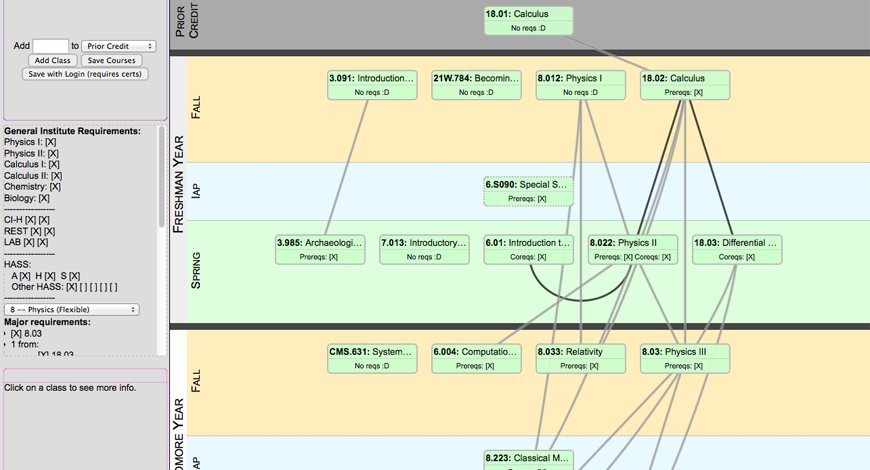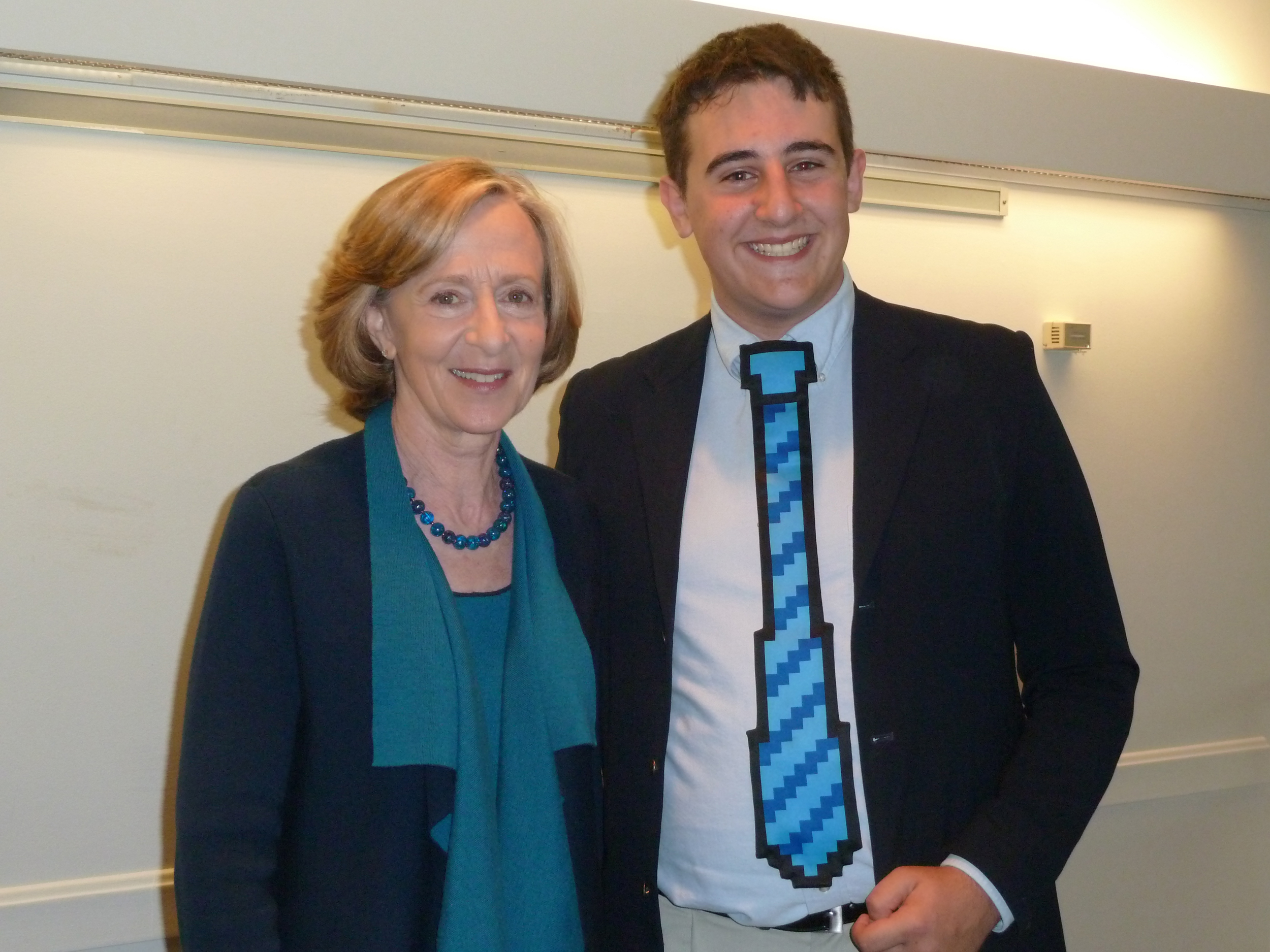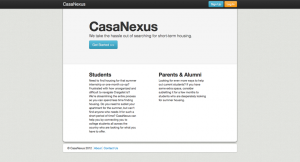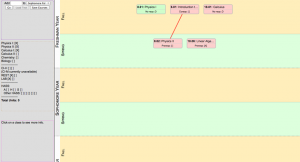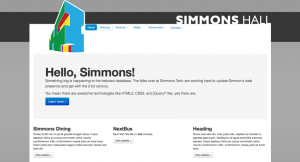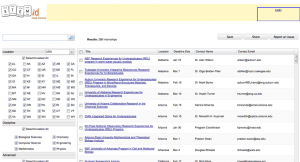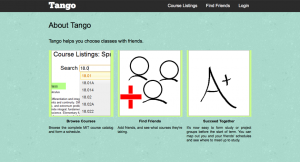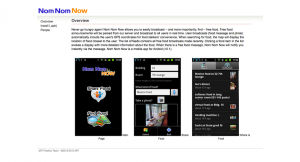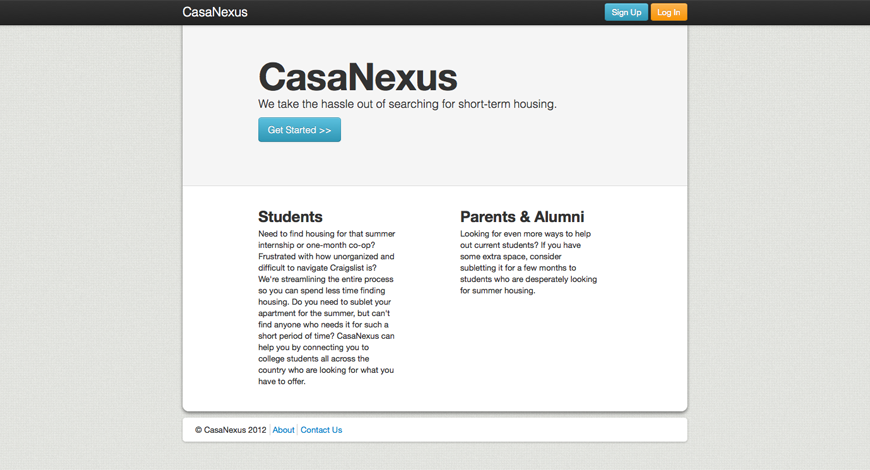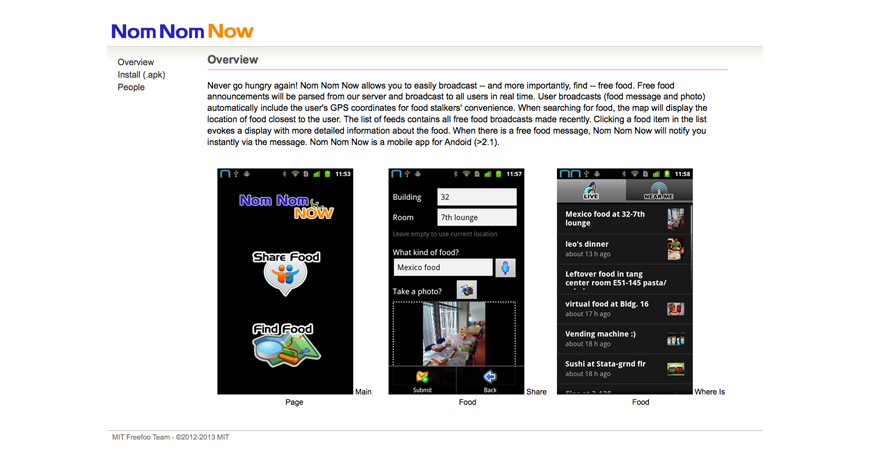See related article at MIT News and the MIT Office of the Dean for Undergraduate Education Newsletter.
The MIT Council for Educational Technology (MITCET) and the Office of Educational Innovation and Technology (OEIT) are pleased to announce CourseRoad as the grand prize winner and Dormbase as the runner-up of the 2012 iCampus Student Prize competition. CourseRoad and Dormbasewere recognized during the Institute’s Freshman Awards ceremony on May 17, 2012.
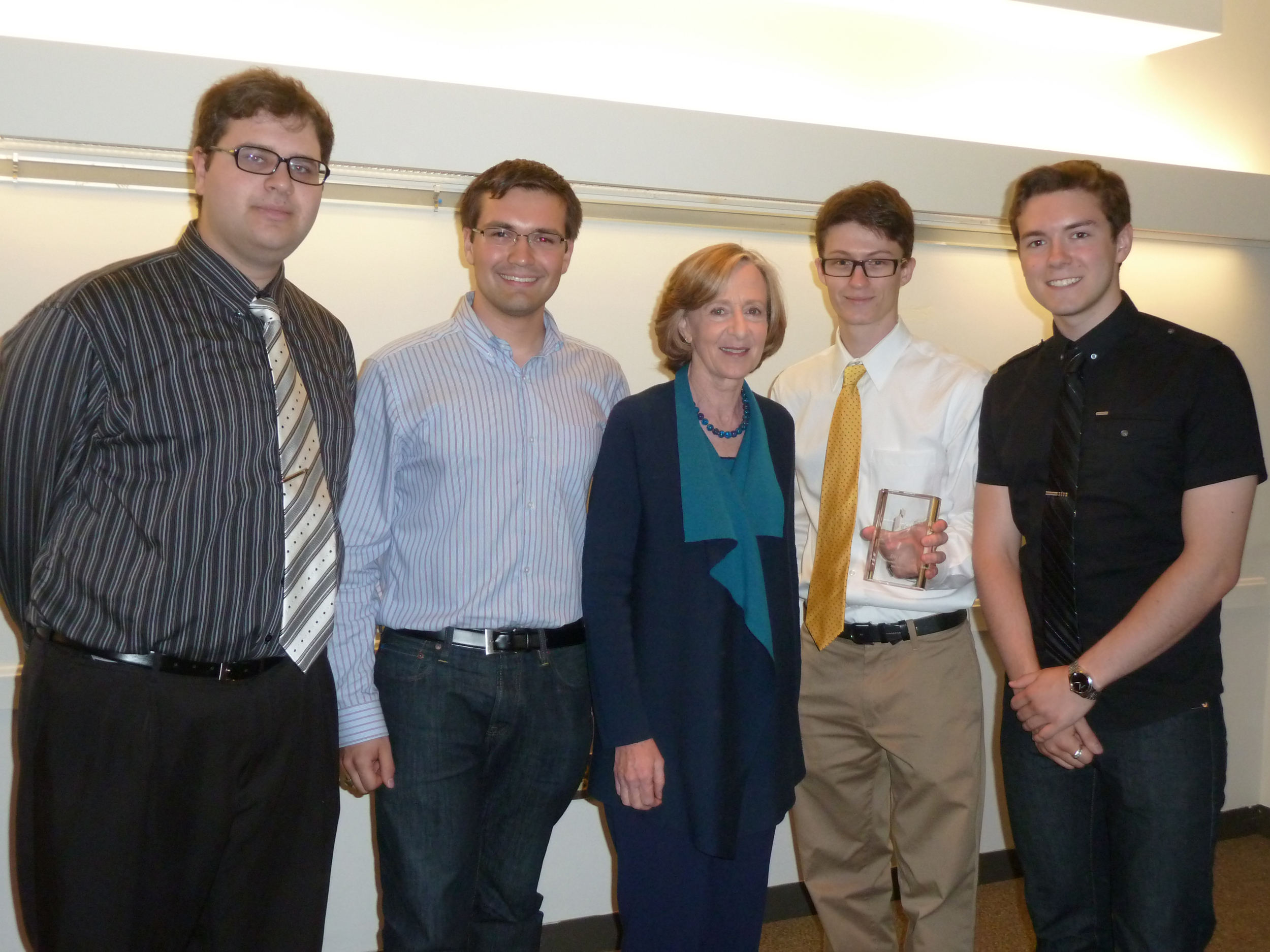
CourseRoad and Dormbase emerged as the top projects from the final round competition where the five finalists from the first round competition were invited to present a poster and give a short presentation on their project. Judges from MIT and Microsoft evaluated the finalists in three areas: relevance to MIT, potential for impact and design.
2012 Winners
CourseRoad: Grand Prize Winner
CourseRoad builds a user-friendly page where users can map out their classes through their undergraduate careers. CourseRoad presents the user with a vertical timeline of undergraduate semesters, and makes it easy to add, remove, and drag classes between terms. The site then provides a web of prerequisite and corequisite connections between the classes and visually alerts the user to any conflicts. CourseRoad is currently in beta testing. The CourseRoad team consisted of Danny Ben-David, ’15.
The judges were impressed with the progress that Danny made as an one person team, and thought CourseRoad could be a powerful tool for students and their advisors. Danny received a check for $6,000 as grand prize winner. OEIT will be working with Danny through the summer to further develop CourseRoad.
Dormbase: Runner-Up
Dormbase is a web-based system that provides MIT dormitories with the tools and services they need for daily operation. It provides reliable, modern, and user-friendly online services for residents, desk workers, and student administrators. The goal is for Dormbase to provide a consistent user experience across all MIT dormitories. The Dormbaseteam consisted of Alex Chernyakhovsky ’14, Cosmos Darwin ’15, Drew Dennison ’13, Isaac Evans ’13, and Luke O’Malley ’14.
The judges recognized Dormbase the potential Dormbase has to improve student-run dorm operations across the Institute, naming it runner-up for the 2012 iCampus Student Prize competition. The Dormbase team will split the $4,000 cash prize as runner-up.
Dormbase is a web-based system that provides MIT dormitories with the tools and services they need for daily operation. It provides reliable, modern, and user-friendly online services for residents, desk workers, and student administrators. The goal is for Dormbase to provide a consistent user experience across all MIT dormitories. The Dormbaseteam consisted of Alex Chernyakhovsky ’14, Cosmos Darwin ’15, Drew Dennison ’13, Isaac Evans ’13, and Luke O’Malley ’14.
More Information
Further information on the iCampus Prize, as well as announcements of future competitions, can be found at iCampusPrize.mit.edu.
About the iCampus Prize
The iCampus Student Prize recognizes the innovative and creative application of technology that improves living and learning at MIT. The competition builds upon the entrepreneurism and spirit of service exhibited by MIT students to solve the world’s problems by focusing attention of what might be improved closer to home in MIT’s education and student life.
The competition is open to all current MIT undergraduates and graduate students, both individuals and groups. Entries must involve the use of technology to enhance living and learning at MIT, and they must be developed to the point where MIT could adopt them and integrate them into MIT.

